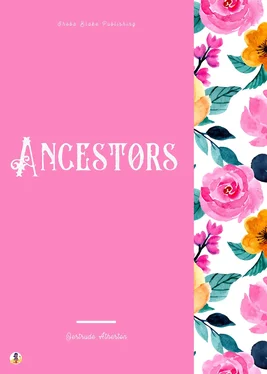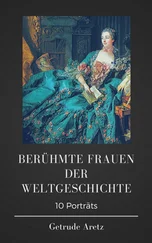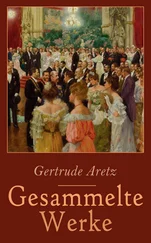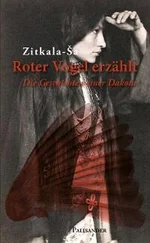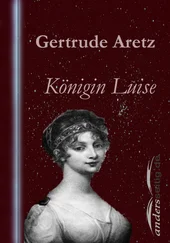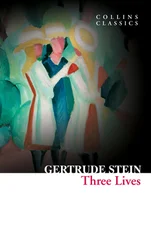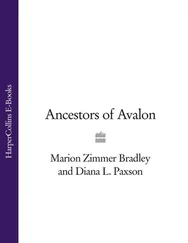Gertrude Atherton - Ancestors
Здесь есть возможность читать онлайн «Gertrude Atherton - Ancestors» — ознакомительный отрывок электронной книги совершенно бесплатно, а после прочтения отрывка купить полную версию. В некоторых случаях можно слушать аудио, скачать через торрент в формате fb2 и присутствует краткое содержание. Жанр: unrecognised, на английском языке. Описание произведения, (предисловие) а так же отзывы посетителей доступны на портале библиотеки ЛибКат.
- Название:Ancestors
- Автор:
- Жанр:
- Год:неизвестен
- ISBN:нет данных
- Рейтинг книги:3 / 5. Голосов: 1
-
Избранное:Добавить в избранное
- Отзывы:
-
Ваша оценка:
- 60
- 1
- 2
- 3
- 4
- 5
Ancestors: краткое содержание, описание и аннотация
Предлагаем к чтению аннотацию, описание, краткое содержание или предисловие (зависит от того, что написал сам автор книги «Ancestors»). Если вы не нашли необходимую информацию о книге — напишите в комментариях, мы постараемся отыскать её.
Ancestors — читать онлайн ознакомительный отрывок
Ниже представлен текст книги, разбитый по страницам. Система сохранения места последней прочитанной страницы, позволяет с удобством читать онлайн бесплатно книгу «Ancestors», без необходимости каждый раз заново искать на чём Вы остановились. Поставьте закладку, и сможете в любой момент перейти на страницу, на которой закончили чтение.
Интервал:
Закладка:
However, she smiled, and he smiled politely in return, advancing a few steps to meet her. “I hope you have heard of me,” she said. “Your mother is so busy—English people are so indifferent to details—I am your cousin, Isabel Otis—”
“Of course my mother has spoken of you. I am very glad to see you in my house,” he added, hospitably. “Shall I show you the way?”
He made no further remark as they descended the darker section of the stair, and she could think of nothing to say to him. Nor did she particularly care to think of anything, the American in her resenting his lack of effort. But as they reached the door she paused abruptly.
“I forgot! Miss Thangue asked me to knock at her door—”
“You take us too seriously,” he said, with a slight sneer. “Flora has evidently forgotten you; she came down a quarter of an hour ago.”
Isabel lifted her head still higher, annoyed at the angry blood that leaped to her face. “I am afraid I am rather literal,” she said, with more hauteur than the occasion demanded. “But perhaps you will tell me where to go. There seems to be a bewildering number of rooms. After three years of lodgings in Europe, to say nothing of the modest architecture of Rosewater, I feel as if astray in a maze.”
“You got that off as if you were a masquerading princess,” he said, with a flicker of humor in his eyes. “Americans generally bluff the other way.” He opened the door. “We meet here in the hall. There is my mother. You are not obliged to speak to her, you know. We are less formal in life than in novels.” With this parting shot he left her abruptly and joined a small dark woman with a plebeian face, a sensual mouth, and magnificent black eyes.
“The rude beast!—Julia Kaye, of course.” But Isabel forgot them both in the novelty of the scene. The square white hall was lit with wax-candles and shaded lamps, and filled with the murmur of voices—beautiful gowns—the sparkle of jewels. Isabel dismissed the memory of early trials, the long years she had lived in the last three, her philosophic resignation to the disillusions and disappointments with which her liberty had been pitted; it was her first appearance in the world of fashion—which she entered, after all, by a sort of divine right. Trepidation was undeveloped in her, and when she had stood for a moment, quite aware that her proud and singular beauty had won her instant recognition, she walked over to her hostess.
No fresh demand was made on her courage. Lady Victoria’s earlier mood of colossal indifference had been dissipated by her son’s return. She greeted Isabel with a dazzling smile and a winning gesture.
“Isn’t Jack a darling? Isn’t he a dear?” she commanded. “I have put you on his left, that you may be sure not to be bored. What hair! That is your legacy from Spain. I have the eyes, but I never had a foot of hair. I hope you are comfortable. I expect you to remain a week. I am so glad that Jack will be here. The place is intolerably dull without him.”
Isabel, warming to such maternal ardor in a beauty whose years were prematurely emphasized by a son as conspicuous as Elton Gwynne, summoned a few vague words of enthusiasm. She was reproached politely for wandering about England for two months before discovering herself to her relatives; then, Lady Victoria’s interest waning, she turned to a young man, handsome and Saxon and orthodox, and said, casually, “Jimmy, you will take in Miss Otis.”
Dinner had already been announced. The twain, in complete ignorance of each other’s identity, walked through a long line of rooms, almost unfurnished but for the scowling or smiling dead crowding the walls. Isabel decided that she would be as effortless as the English and see what came of it. The practised instinct of the American girl, added to the excessive hospitality of the Californian, would have led her to put her companion immediately at ease, but not only was she fond of experimenting with racial characteristics upon her own hidden possibilities, but she was intensely proud, and the English attitude had stung her more than once.
“Why should I please them?” she thought, contemptuously. “Let them please me.”
Her companion betrayed no eagerness to please her; and during the first ten minutes at table he talked to Gwynne about the late elections. Evidently, he too had emerged from the political fray triumphant. Isabel sat like a stately picture by Reynolds, and after her slow gaze had travelled over the dark full-length portraits of the kings and queens that had honored Capheaton, it dropped to the more animated faces in the foreground. The men were good-looking, with hardly an exception; judging by their carriage they might all have been army men, but as every word that floated to the head of the table was political, they possibly had followed their successful host’s example and adopted an equally intermittent career. One or two of the women were almost as handsome as Lady Victoria, with their superb figures, their complexions of claret and snow, that blending of high breeding and warm palpitating humanity one never sees outside of England. But others within Isabel’s range were too haggard for beauty, although one had a Burne-Jones face and her eyes gazed beyond the company with an expression that made her seem pure spirit; but she too looked tired, delicate, curiously overworked.
Opposite Isabel was a tall buxom young woman of the purest Saxon type, who was talking amiably with the man on her right, and occasionally shaking with deep and silent laughter; her intimate casual manner, her slight movements, her accentuation, manifestly bred in the bone. Suddenly it was borne in upon Isabel’s always sensitive consciousness that she was the only haughty and reserved person present, and she felt provincial and laughed frankly at herself. The lady across the table claiming the attention of the host, she turned to her own partner. Her black eyelashes were long, and under their protecting shadow she swept a glance at the card above the young man’s plate. It was inscribed, “Lord Hexam.” She saw her opportunity and asked, ingenuously:
“How can you be a member of the House of Commons?”
He looked up from his fish and replied, somewhat cuttingly, “By contesting a borough and getting elected.”
“But I thought a peer could not be in the House of Commons.”
“He can’t.”
“Then how can you be?”
“I am not a peer.” He looked very much annoyed.
“But you are Lord Hexam.”
He answered, sulkily: “I happen to be the son of a peer.”
“Are you irritated because I know nothing about you?” asked Isabel, cruelly. “Do you suppose I have wasted my time in England reading Burke?”
“No, there are too many sights,” he replied, more cruelly still.
“They are far more interesting than most of the people I have met.” Then she changed her tactics and smiled upon him; and when she smiled she showed a dimple hardly larger than a pin’s head at one corner of her flexible mouth. For the first time he looked under her eyelashes into the odd blue eyes, with their dilated pupils and black rim edging the light iris. He suddenly realized that she was beautiful, in spite of the three little black moles on her face—he detested moles—and smiled in return.
“I am afraid I was rude. But I am really shy, and you quite took it out of me. I am more afraid of the American girl than of anything on earth.”
“How did you know I was an American?”
“By your accent.” He laughed good-naturedly. “Now I am even with you.”
“Well, you are. Californians pride themselves upon having no accent.”
“Oh, it is not nearly so bad as some. But it is there all the same. Not a twang nor a drawl, but—well—every country has its unmistakable stamp.”
Читать дальшеИнтервал:
Закладка:
Похожие книги на «Ancestors»
Представляем Вашему вниманию похожие книги на «Ancestors» списком для выбора. Мы отобрали схожую по названию и смыслу литературу в надежде предоставить читателям больше вариантов отыскать новые, интересные, ещё непрочитанные произведения.
Обсуждение, отзывы о книге «Ancestors» и просто собственные мнения читателей. Оставьте ваши комментарии, напишите, что Вы думаете о произведении, его смысле или главных героях. Укажите что конкретно понравилось, а что нет, и почему Вы так считаете.
